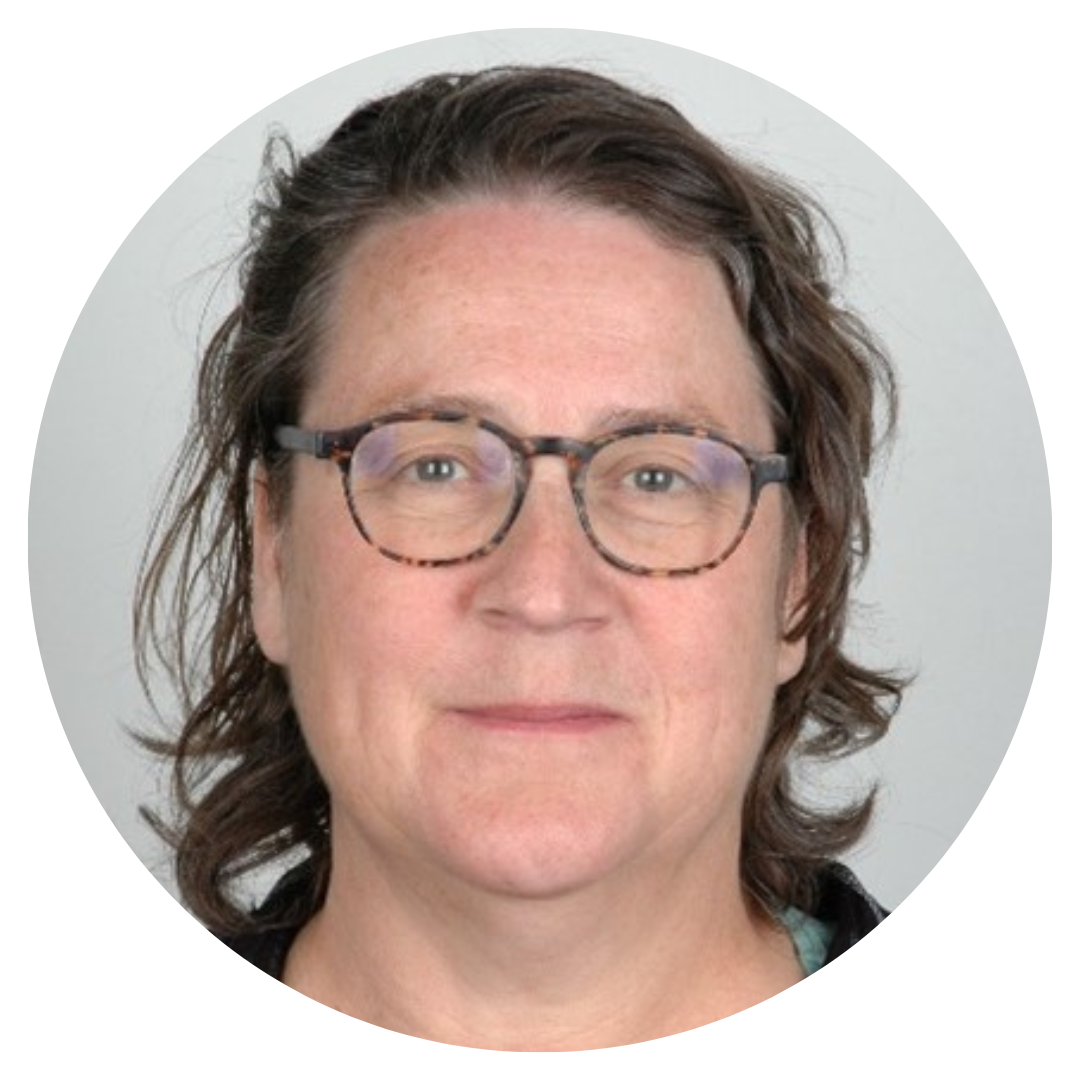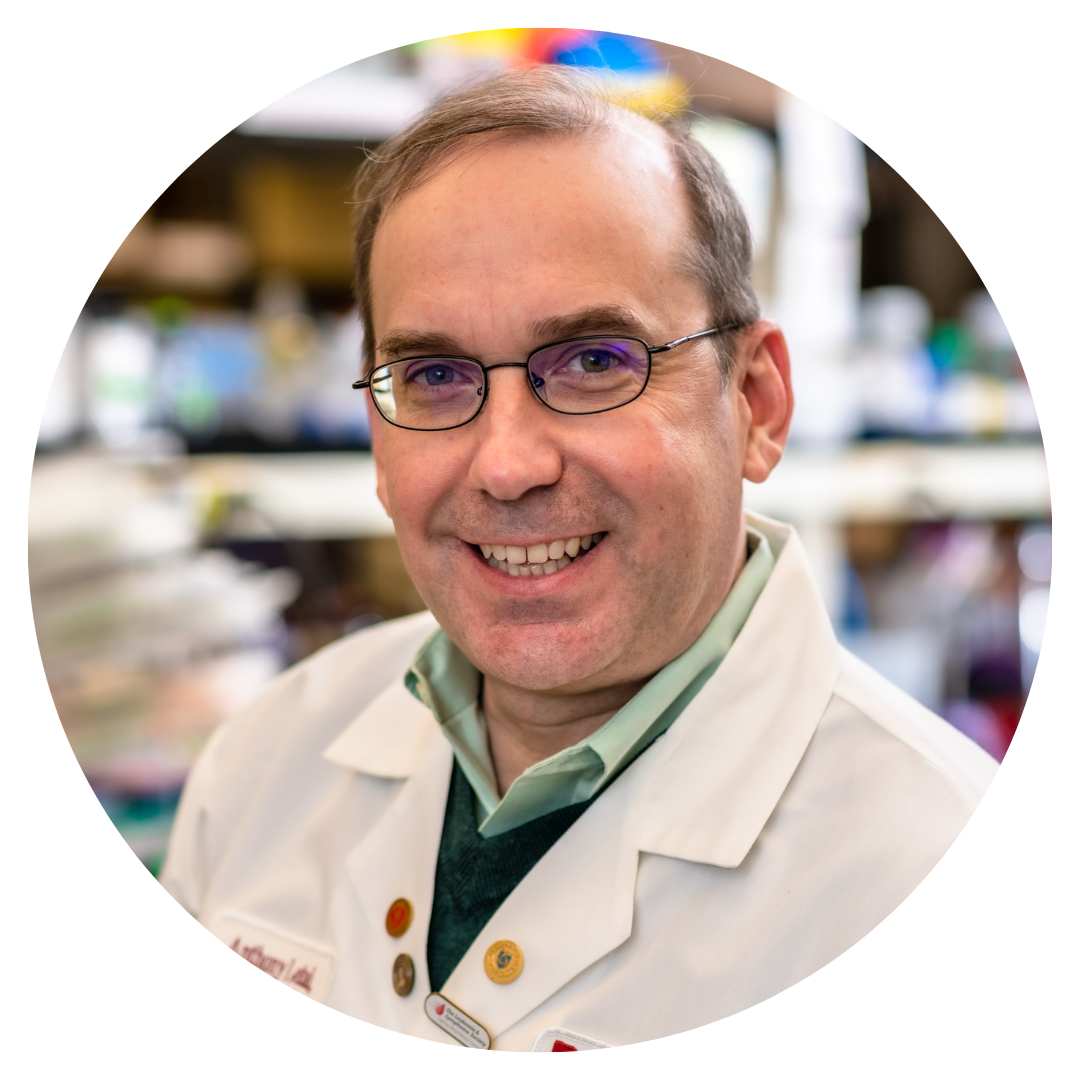SPEAKERS
WEDNESDAY, NOVEMBER 6, 2024
EDUCATION DAY SPEAKERS
Pathology of Histiocytosis |
Aishwarya Ravindran | Dr. Aishwarya Ravindran is a consultant Hematopathologist at the University of Alabama at Birmingham (UAB) and an Associate Scientist in Cancer Control and Population Science at the O’Neal Comprehensive Cancer Center at UAB. She received her MBBS from Stanley Medical College in India. Subsequently, she pursued her research fellowship in Hematology, followed by a residency in Anatomic/Clinical Pathology and a fellowship in Hematopathology at the Mayo Clinic in Rochester, Minnesota. While training at the Mayo Clinic, she developed a special interest in studying rare diseases, specifically histiocytic/dendritic cell neoplasms. Her research analyzes the phenotypic and genotypic correlates in these neoplasms and integration into clinical practice. She has published numerous peer-reviewed scientific articles and was also a recipient of the Mayo Clinic Dr. Hobart K.B. Allebach Fellowship award and the American Society of Clinical Pathology- 40 under forty honoree for outstanding contributions to the field of pathology. As an active member of the multidisciplinary Mayo Clinic - UAB Histiocytosis Working Group, she aims to improve awareness about these rare disorders. |
Amanjit Bal | Dr. Amanjit Bal is a medical professional specializing in Histopathology. She holds an MD, DNB, and a Masters in Molecular Pathology & Genomics. Currently, she is a Professor in the Department of Histopathology at PGIMER, Chandigarh. Dr. Bal's expertise lies in Lymphomas, Pulmonary Pathology, and Breast Pathology. Throughout her career, Dr. Bal has made significant contributions to medical science with over 400 publications in peer-reviewed journals and 11 chapters in various books. Her dedication to research has earned her prestigious accolades, including the Commonwealth Scholarship and the VR Khanolkar Award for the best-published research paper. Dr. Bal's commitment to her field and her extensive body of work make her a leading figure in medical pathology, inspiring many in the academic and medical communities. |
ECD, RDD and Malignant Histiocytosis |
Jithma Abeykoon | Jithma Abeykoon is an Assistant Professor of Hematology and Medical Oncology and a Senior Associate Consultant in the division of Hematology at Mayo Clinic, MN. His clinical interest is in lymphoma and histiocytic malignancies. As a clinician investigator, he aims to understand and delineate the disease biology, disease characteristics, and clinical outcomes of patients with non-Hodgkin lymphoma (NHL) and histiocytic malignancies, focusing on identifying new treatment strategies and biomarkers. He has also led the preclinical studies that identified a novel drug combination that induced an antitumor effect in hematologic malignancies and solid tumors through novel mechanisms of action, one being inducing homologous recommendation repair (HRR) deficiency in HRR proficient cells by decreasing the expression of RAD51, a critical protein involved in HRR. Jithma also brought his findings from bench to bedside with an investigator-initiated phase 1 clinical trial, which is now open at Mayo Clinic, MN, for patients with histiocytic malignancies and relapsed lymphoma (NCT04640779). With Dr. Ronald Go, he lead the Mayo Clinic histiocytic neoplasia practice, and we published the index patient with CNS-involved ECD who was successfully treated with CSF1R inhibitor pexidartinib. His research is on translational sciences and focused on deepening our understanding of the pathobiology of histiocytic malignancies in order to find new and effective treatment strategies for patients with histiocytic and other rare blood cancers. |
Nitya Gulati | Dr. Nitya Gulati is an Assistant Professor of Pediatrics in the division of Pediatric Hematology and Oncology at Weill Cornell Medical College in New York City, USA. She obtained her medical degree from Seth G.S. Medical College and K.E.M. Hospital in Mumbai, India, followed by a pediatrics residency at SUNY Downstate Medical center, Brooklyn, NY. She completed her pediatric hematology/oncology fellowship at the joint program between New York-Presbyterian Hospital/Weill Cornell Medical Center and Memorial Sloan-Kettering Cancer Center. She then went on to complete a year of specialized training in Pediatric lymphoma and Histiocytosis at Baylor College of Medicine(BCM)/Texas Children’s Hospital Cancer and Hematology Centers (TXCH) in Houston, Texas. Dr. Gulati subsequently joined the lymphoma and histiocytosis team as an Assistant professor at TXCH and worked there between 2019-2023 before returning to WCMC in 2023. Dr. Gulati's research and clinical interests focus on identifying pathogenic mechanisms of pediatric histiocytosis and lymphomas through collaborative and comprehensive research projects that look at the histologic, molecular, and genomic features of these diseases with the goal of identifying potential novel therapeutic targets. Dr. Gulati is an active member of the pediatric non-Hodgkin lymphoma committee of the children’s oncology group (COG) and serves as the vice-chair on the first of its kind trial for relapsed LCH conducted by the COG. |
Rohan Halder | Dr. Rohan Halder is a consultant haematologist in the department of haemato-oncology and bone marrow transplantation at Rajiv Gandhi Cancer Institute and Research Centre, New Delhi, India. He obtained his medical school from Rajiv Gandhi University of Healthy Sciences (RGUHS), Bengaluru, India, in 2009. During his post-graduation at Vardhaman Mahavir Medical College and Safdarjung Hospital (VMMC & SJH), he developed special interest in haematology-oncology and then went on to pursue D.M. in clinical haematology from All-India Institute of Medical Sciences (AIIMS), New Delhi from 2016-2019. He also did his fellowship in haemato-oncology from Sanjay Gandhi Post Graduate Institute of Medical Sciences (SGPGIMS), Lucknow. During his residency-fellowship, he worked under the astute guidance of his mentors who ushered his skills in haemato-oncology and bone marrow transplant. Besides histiocytosis, his keen interests are in myeloid malignancies, bone marrow failure disease, stem cell transplantation and newer cellular therapies like chimeric antigen T cell therapy. He hopes to make histiocytic disorders a more recognizable and understood disease among his peers in India. |
Langerhans Cell Histiocytosis
 Gaurav Goyal | Dr. Gaurav Goyal was born and raised in a small town in India. He obtained his medical school diploma from Smt. N.H.L. Municipal Medical College in Ahmedabad, India, in 2011. Subsequently, he moved to the United States to complete a residency in Internal Medicine from Creighton University Medical Center, Omaha, Nebraska in 2016. During his residency, he developed special interest in hematology-oncology and went on to pursue a fellowship in the same from Mayo Clinic, Rochester, Minnesota from 2016-2019. During his fellowship, he developed a unique focus in a rare group of blood diseases called as histiocytic disorders, including Erdheim-Chester disease, Langerhans cell histiocytosis, and Rosai-Dorfman disease. He conducted multiple studies describing the epidemiology, treatments, and outcomes of patients with histiocytosis and led to the establishment of first of its kind multidisciplinary Histiocytosis Working Group. He has led national and international guidelines on the diagnosis and management of these rare disease entities. He was subsequently recruited to join the Hematology-Oncology division at University of Alabama at Birmingham as an Assistant Professor in 2019. Dr. Goyal established the histiocytosis program after moving to UAB and expanded the Histiocytosis Working Group to include members from UAB. He continues to conduct clinical, translational, and outcomes research in histiocytosis at his current position. He has additionally developed special interest in survivorship research with ongoing projects evaluating burden of morbidity and mortality among individuals with histiocytic disorders. |
Milen Minkov | Dr. Milen Minkov is a Full Professor of pediatrics and Head of the Research Center of Child Health, Growth, and Development at the Sigmund Freud University, and Chair of the International LCH Study Center at the CCRI, St. Anna Kinderkrebsforschung in Vienna, Austria. In his professional career since 1991, Dr. Minkov provided clinical care, supervised trainees, and conducted clinical research. His research has been focused on LCH and other histiocytoses. His scientific treatise encompasses over 150 peer-reviewed papers and nine book chapters. Dr. Minkov was 1997 the first recipient of the Mark Nesbit Award for Clinical Science of the Histiocyte Society. He was president of the Histiocyte Society 2016-2019 and is currently president of the European Consortium for Histiocytosis (ECHO). He is a member of several professional societies and networks and a medical advisor of patient and parent organizations. |
Shweta Bansal | Dr. Shweta Bansal is the Head and Senior Consultant Pediatric Hematologist-Oncologist and BMT Physician at Sir HN Reliance Foundation Hospital in Mumbai, India. With over two decades of extensive experience and specialized training, Dr. Bansal has established herself as a leading figure in pediatric hematology-oncology. Dr. Bansal completed her MBBS from Jammu Government Medical College in 1998, followed by a Diplomate of National Boards in Pediatrics at Sir Ganga Ram Hospital, Delhi, in 2005. Her specialist training includes roles as Senior Registrar in Pediatric Oncology at Rajiv Gandhi Cancer Institute and Research Center and as a Clinical Research Fellow at Tata Memorial Hospital. She also holds a European Certification in Medical Oncology (ESMO) and has pursued fellowships at prestigious institutions such as St. Jude Children’s Hospital in the USA and National University Hospital in Singapore. In her professional journey, Dr. Bansal has held significant positions such as Treasurer and Joint Treasurer of the Pediatric Hemato-Oncology Chapter of IAP, and now currently playing a role of National coordinator for National training practical pediatric hematology ( NTP PPH ) for young pediatricians . She has been Editor-in-Chief of the South Asian Journal of Cancer, and Executive Member of the Marrow Donor Registry of India. She is on the National Advisory Board for the Indian Journal of Medical and Pediatric Oncology and serves on the Ethics Committee of ICMR, NIIH. She is also an active member of the Asian histiocytic disorder collaborative group and has special interest in understanding the various histiocytic disorders. Dr. Bansal has a robust background in research and clinical trials, contributing as Principal Investigator and Co-Investigator in several multi-centric studies. Her research work primarily focuses on immunodeficiencies, congenital fibrinogen deficiency, and hemophilia. A dedicated educator, Dr. Bansal has served as a DNB coordinator, thesis guide, and MUHS PG teacher for Pediatric Hematology and Oncology fellowship. Her contributions to medical literature include over 20 publications in peer-reviewed journals, addressing critical issues in pediatric hematology and oncology. Dr. Bansal’s commitment to advancing pediatric hematology-oncology and her substantial contributions to research and education continue to influence the field profoundly. |
Hemophagocytic Lymphohistiocytosis
Adi Zoref-Lorenz | Dr. Adi Zoref-Lorenz is a physician-scientist specializing in hemophagocytic lymphohistiocytosis (HLH) and its mechanisms in malignancies. She trained for three years at the Jordan Lab at Cincinnati Children’s Hospital Medical Center and completed a PhD at Tel Aviv University. Currently, she works at the hematology institute at Meir Medical Center in Israel and is a young faculty member at the Faculty of Medicine and Health Sciences at Tel Aviv University. Dr. Zoref-Lorenz's research focuses on elucidating the pathogenesis of HLH, particularly in hematologic malignancies. She aims to identify diagnostic and therapeutic markers for HLH in malignancies and to test them in clinical trials. At Meir Medical Center, she established the Oncologic Hyper Inflammation (OHI) laboratory and is developing an HLH service to enhance patient care and diagnostic precision. She leads international collaborative research projects that have already improved the diagnosis of HLH in hematologic malignancies using the Optimized HLH Inflammatory (OHI) Index and advanced our understanding of HLH through proteomic analysis. Dr. Zoref-Lorenz is leading the Adult HLH working group’s project with Dr. Gaurav Goyal to identify effective treatments for patients with lymphoma-associated HLH. She also contributed to establishing the INTO-HLH Registry led by Dr. Michael Jordan and is active in its medical and scientific aspects. Her dedication to translational medicine has been recognized through several awards, including the American Society of Hematology Global Research Award. She has been invited to speak at international meetings, such as the educational session at the 65th ASH meeting in San Diego. |
Charanpreet Singh | Dr. Charanpreet Singh earned his MD in Internal Medicine from the Postgraduate Institute of Medical Education and Research (PGIMER), Chandigarh. Following this, he pursued and completed his DM in Clinical Hematology from the same institution. Currently, Dr. Singh serves as a Senior Research Associate in the Department of Clinical Hematology and Medical Oncology at PGIMER, Chandigarh. His professional interests are primarily focused on lymphomas and patient-related outcome research. |
THURSDAY, NOVEMBER 7, 2024
Malignant Histiocytosis Education Session Speakers
Gaurav Goyal | Dr. Gaurav Goyal was born and raised in a small town in India. He obtained his medical school diploma from Smt. N.H.L. Municipal Medical College in Ahmedabad, India, in 2011. Subsequently, he moved to the United States to complete a residency in Internal Medicine from Creighton University Medical Center, Omaha, Nebraska in 2016. During his residency, he developed special interest in hematology-oncology and went on to pursue a fellowship in the same from Mayo Clinic, Rochester, Minnesota from 2016-2019. During his fellowship, he developed a unique focus in a rare group of blood diseases called as histiocytic disorders, including Erdheim-Chester disease, Langerhans cell histiocytosis, and Rosai-Dorfman disease. He conducted multiple studies describing the epidemiology, treatments, and outcomes of patients with histiocytosis and led to the establishment of first of its kind multidisciplinary Histiocytosis Working Group. He has led national and international guidelines on the diagnosis and management of these rare disease entities. He was subsequently recruited to join the Hematology-Oncology division at University of Alabama at Birmingham as an Assistant Professor in 2019. Dr. Goyal established the histiocytosis program after moving to UAB and expanded the Histiocytosis Working Group to include members from UAB. He continues to conduct clinical, translational, and outcomes research in histiocytosis at his current position. He has additionally developed special interest in survivorship research with ongoing projects evaluating burden of morbidity and mortality among individuals with histiocytic disorders. |
Jennifer Picarsic | Dr. Jennifer Picarsic is the Co-Director of the Histiocytosis Center at Cincinnati Children’s Hospital Medical Center (CCHMC), LCH Pathology Lead for the Children’s Oncology Group (COG) LCH subcommittee, and North American central pathology reviewer for International Rare Histiocytosis Disorders registry (IRHDR). Her academic work is focused on the molecular and histopathology correlations in histiocytic neoplasms. She serves as an expert pathology consultant on pediatric and adult histiocytic cases from around the world and is a co-author and contributor of various consensus guidelines, peer-reviewed articles, and book chapters with contributions to the WHO Classification of Tumours series, including to the Haematolymphoid Tumours, Pediatric Tumour, Skin Tumours, Soft Tissue and Bone Tumours, and Head and Neck Tumours 5th edition chapters. She serves on the Executive Board of the Histiocytosis Society as Treasurer, while also serving on the Board of Directors for the Society for Pediatric Pathology and Digital Pathology Association. In her role as Director of Digital Pathology and AP Informatics at CCHMC, she leads the digital transformation within the Division of Pathology focused on enhancing diagnostic patient care through timely expert second reviews and implementing innovative tools to help standardize pathology reporting. |
FRIDAY, NOVEMBER 8, 2024
Guest Speakers
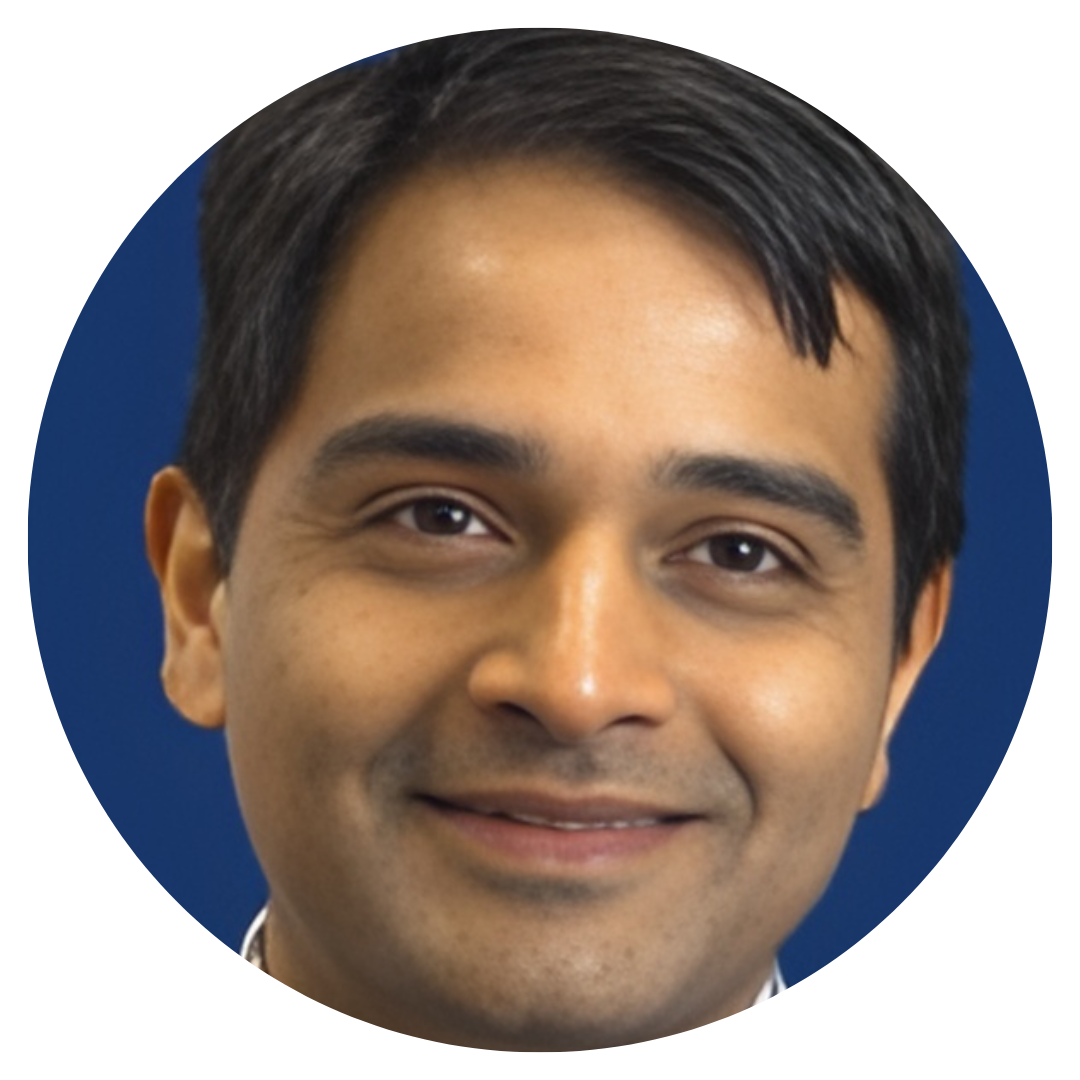 Naval Daver | Dr. Naval Daver is a professor and director of the Leukemia Research Alliance Program in the Department of Leukemia at MD Anderson Cancer Center(MDACC) in Houston, TX. He is a clinical investigator with a focus on molecular and immune therapies inacute myeloid leukemia (AML) and myeloid disease, and is principal investigator on more than 25 ongoing institutional, national, and international clinical trials in these diseases, including multiple registration and label enabling trials. These trials focus on developing a personalized therapy approach by targeting specific mutations or immune pathways expressed by patients with AML, evaluating novel combinations of targeted, immune, and cytotoxic agents, and identifying and overcoming mechanisms of resistance. He is especially interested in developing monoclonal and bispecific antibodies, immune checkpoint, CD47, NK and T-cell based approaches, as well as combinations of targeted and apoptotic therapies in AML, and he is leading a number of these trials at MDACC. Dr Daver has published more than 400peer-reviewed manuscripts and is on the editorial board of numerous hematology journals. He also serves as Chair on numerous national and international meetings and educational platforms. |
| Dr. Ronald Go is a medical graduate of the University of Santo Tomas in Manila, Philippines. He completed internal medicine residency at Baylor Colllege of Medicine in Houston, Texas and hematology-oncology fellowship at Mayo Clinic in Rochester, Minnesota. He is a Professor of Medicine and the Chair of the Classical Hematology section in the Division of Hematology in Rochester, Minnesota. Besides histiocytosis, his clinical and research interests include autoimmune hemolytic anemia, thrombotic microangiopathy, and monoclonal gammopathy of unknown significance. He is a member of the Histiocyte Society Rare Histiocytosis Steering Committee and chairs the National Comprehensive Cancer Network Histiocytic Neoplasms Guidelines Panel. |
HLH Symposium Presenters
| Dr. Murali Krishna Kaja is an associate professor at Emory University and serves as the associate director for the ICGEB-Emory Vaccine Center joint program in India. Over the past 30 years, he has made significant contributions to the field of immunology, particularly in the areas of human immunology of infectious diseases and vaccines, immune memory, and disease pathogenesis. His work has been instrumental in advancing both the fundamentals of immunology and its application in infectious diseases and vaccine development. His areas of interest include emerging infectious diseases, polio eradication, and basic and translational immunology. |
|
Dr. Mihai Netea was born and studied medicine in Cluj-Napoca, Romania. He completed his PhD at the Radboud University Nijmegen, The Netherlands, on studies investigating the cytokine network in sepsis. After working as a post-doc at the University of Colorado, he returned to Nijmegen where he finished his clinical training as an infectious diseases specialist, and where he currently heads the division of Experimental Medicine, Department of Internal Medicine, Nijmegen University Nijmegen Medical Center. He is mainly interested in understanding the memory traits of innate immunity (trained immunity), the factors influencing variability of human immune responses, and the immune dysregulation during bacterial and fungal infections. He is the recipient of the Spinoza Prize 2016 and an ERC Advanced grant in 2019, and since 2016 he is a member of the Netherlands Royal Academy of Sciences (KNAW).
|
Zhao Wang | Dr. Zhao Wang is a Professor of Hematology at the Capital Medical University and the Director of Hematology department in Beijing Friendship Hospital, China. He received the M.D. and Ph.D. from Peking Medical University in 1997. Over the past 20 years, he has focused on the researching hemophagocytic lymphohistiocytosis (HLH) and EBV related diseases, publishing over 100 related research papers. He serves as an executive member of HLH Steering Committee of Histiocyte Society and as chairman of Chinese Professional Committee of Histiocytic Diseases, leading the establishment of the Chinese HLH Union and the formulation of Chinese guidelines for the diagnosis and treatment of HLH. His team has conducted a series of studies on the pathogenesis, stratified diagnosis and treatment of EBV related HLH and CAEBV, and won the Beijing Science and Technology Award (2017) and Chinese Medical Science and Technology Award (2020). |
Meet the Expert - HLH Speaker
Melissa Hines |
|
Presidential Symposium Speakers
Presentations nominated for the Nezelof Prize in Basic Science |
Aki Soto
| Dr. Aki Sato is an Assistant Professor in the Department of Hematology/Oncology at the Institute of Medical Science Research Hospital (IMSUT), the university of Tokyo. She has been practicing and researching hematopoietic stem cell transplantation at IMSUT. She started working in the field of histiocytic neoplasms (HNs) in 2021. She focuses on clinical and translational research in adult HNs. She and her colleagues established the integrated pathology diagnostic system for HNs and the genetic panel testing for HNs. She and the pediatricians specializing in LCH worked with patients and a patient advocacy group to promote the approval of dabrafenib and trametinib for HNs in 2023. She received a research grant and began research this year to establish a patient registry/biorepository system for HNs in Japan. She would like to collaborate with experts in these rare diseases in Japan and abroad. Aki will be presenting the abstract entitled HISTIOCYTIC NEOPLASMS AND ADDITIONAL MALIGNANCIES DERIVED FROM COMMON ANCESTRAL CLONE during the Presidential Symposium on Friday, November 8. |
Astrid van Halteren
| Dr. Astrid van Halteren completed her master degree in Biomedical Sciences at the University of Amsterdam in 1991. After defending her PhD thesis in 1996 (Vrije Universiteit Amsterdam), she moved to the Leiden University Medical Center (LUMC), where she started to work in the hemato-oncology field before being introduced into the histiocytosis field in 2008. As a certified specialist in immunology, she became intrigued by the inflammatory component of histiocytosis lesions. Her research team has investigated characteristics of lesional T-cells, co-published on newly identified driver mutations, studied intracellular processing of neoantigens encoded by the most prevalent molecular alteration (BRAFV600E) and recently completed a multi-centre study addressing associations between the three most common mutations and clinical presentation of pediatric LCH. Two abstracts presenting the results of these studies have been nominated by the Histiocyte Society for the Nezelof Prize for best Basic Science (2015) and the Nesbit Prize for Best Clinical Science (2019). As off August 2022, she will be affiliated with the Centre for Histiocytic Disorders established at the Erasmus University Medical Center in Rotterdam, which is acknowledged by the ECD Global Alliance and the Dutch Federation of University Medical Centers. In this new position, she will implement molecular monitoring and central biobanking in conjunction to the diagnosis and treatment of adult histiocytosis patients. In addition, she will continue her research on the hematopoietic ‘cell-of-origin’, which is performed in close collaboration with the Princess Máxima Centre for Pediatric Oncology where she is appointed as co-PI. Her research aims at finding alternative ways to eradicate neoplastic stem/progenitor cells beyond conventional chemotherapy. Astrid will be presenting the abstract entitled DRIVER MUTATIONS IN MYELOID AND LYMPHOID LINEAGE CELLS POINT TOWARDS MULTIPOTENT PROGENITORS AS THE CELL-OF-ORIGIN OF DIVERSE HISTIOCYTIC NEOPLASMS during the Presidential Symposium on Friday, November 8. |
Adi Zoref-Lorenz
|
Adi will be presenting the abstract entitled DEEP PROTEOMIC ANALYSIS REVEALS SHARED TERMINAL MECHANISMS FOR FAMILIAL HEMOPHAGOCYTIC LYMPHOHISTIOCYTOSIS AND LYMPHOMA-ASSOCIATED HYPERINFLAMMATION during the Presidential Symposium on Friday, November 8. |
Presentations nominated for the Nesbit Prize in Clinical Science
Sharat Chandra
| Sharat Chandra is currently an Associate Professor in the Division of Bone Marrow Transplantation and Immune Deficiency at Cincinnati Children’s Hospital Medical Center. His clinical practice focuses exclusively on the diagnosis, treatment, and transplantation of patients with Inborn Errors of Immunity, in particular SCID, Cartilage Hair Hypoplasia, HLH and systemic onset JIA/MAS. His clinical research centers around pharmacokinetic and pharmacodynamic assessments of chemotherapeutic agents used during HSCT, improving transplant conditioning regimens and improving transplant outcomes for patients with Inborn Errors of Immunity and sJIA/MAS. He has been awarded the American Society of Bone Marrow Transplantation New Investigator Award. Sharat will be presenting the abstract entitled SERPING1, LYSOZYME AND CD14: NOVEL CSF BIOMARKERS FOR FACILITATING DIAGNOSIS OF ISOLATED CNS-HLH FROM OTHER NEUROINFLAMMATORY DISORDERS during the Presidential Symposium on Friday, November 8. |
Joseph Rocco
| Joseph Rocco is a physician-scientist and clinical investigator at NIAID and Chief of the HLH and Hyperinflammatory Syndromes Branch within the Laboratory of Immunoregulation. After completing fellowship, he was awarded a position through the NIH Transitional Program in Clinical Research, which provides up to 5-years of funding, to start a clinical-translational research program dedicated to studying the immunopathogenesis of HLH in adults. Subsequently, he opened the HERCULES clinical trial (Hemophagocytic Lymphohistiocytosis Evaluation and Research of Clinical, immUnoLogic and transcriptome Study) - a prospective, longitudinal study of adults with HLH that allows for the systematic collection of research samples while providing clinical care for participants. Thus far, they have treated and collected longitudinal research samples on over 50-individuals. His research laboratory has a multi-Omics focus utilizing proteomics, high-dimensional flow cytometry, paired T-cell receptor and single-cell RNA sequencing, and whole genome sequencing to further characterize these patients. Overall, their goal is to provide an unprecedented, in-depth immunopathogenic evaluation of a well-annotated, prospective HLH cohort to better characterize the spectrum of disease and to identify targetable immune pathways that can be treated with personalized therapies. Joseph will be presenting the abstract entitled PERSISTENT EXPANSION OF NOVEL HYPERACTIVATED T-CELL POPULATIONS CHARACTERIZES IMMUNE EFFECTOR CELL-ASSOCIATED HLH-LIKE SYNDROME AND DIFFERENTIATES IT FROM SECONDARY HLH during the Presidential Symposium on Friday, November 8. |
Elena Sieni
| Dr. Elena Sieni, MD, born in Florence, Italy in 1980, is a pediatric hematologist-oncologist at Meyer Children’s Hospital IRCCS in Florence, Italy. Graduated from the University of Florence, Italy, in 2005, she completed her Pediatric Residency in 2010 with a thesis on genotype-phenotype correlations of FHL3. She first became interested in histiocytosis in 2009 and she was progressively engaged in patients’ care and collaborative research projects in this field. Selected among the “young researchers” program funded by the Meyer Children’s Hospital of Florence, in 2013 she attended the Boston Children’s Hospital, MA-USA, for a short-term observership in Pediatric Hematology-Oncology. Since 2012 she is Chair of the Italian Working Group of Histiocytosis. She is the Italian coordinator of LCH-IV and the chair of the Italian Registries of LCH and HLH. She also serves as vice-president of the European Consortium of Histiocytosis (ECHO) and as a member of the HLH Steering Committee of the Histiocyte Society. Her clinical and research interests focus on histiocytic disorders of children and adults. Her research team has contributed to clinical, molecular and functional characterization of HLH and to the development of diagnostic and monitoring strategies for neurodegenerative LCH. She is actually leading a European effort on circulating Braf monitoring in LCH and a consensus guideline for neurodegenerative LCH. Elena will be presenting the abstract entitled PROGNOSTIC VALUE OF BRAFV600E IN PERIPHERAL BLOOD OF CHILDREN WITH LANGERHANS CELL HISTIOCYTOSIS: A MULTICENTER PROJECT OF THE EUROPEAN CONSORTIUM FOR HISTIOCYTOSIS during the Presidential Symposium on Friday, November 8. |
SATURDAY, NOVEMBER 9, 2024
LCH Symposium Speakers
Nicole Coufal | Dr. Nicole Coufal is a physician scientist with training in pediatric critical care and a research interest in neuroimmunology. She completed her MD-PhD at the University of California, San Diego in medicine and in neuroscience, undertaking her doctoral work at the Salk Institute investigating the contribution of somatic mosaicism to normal brain development and pathological dysregulation of these pathways in neurodevelopmental disorders. She undertook her clinical training in pediatrics and pediatric critical care, becoming interested in the contribution of neuroimmunology to both rare and common neurodevelopmental disorders. Her postdoctoral work involved mapping the dynamic transcriptome and epigenome of primary human microglia and developing and validating tools for studying human microglial biology using stem cell approaches. The lab's primary research interests are to understand the molecular and cellular mechanisms underlying the development and regulation of microglia, the brain's resident innate immune cell, and how dysregulation of microglia contributes to neuroinflammatory and pediatric neurodegenerative disorders. To understand and model microglial biology, Dr. Coufal utilizes patient derived induced pluripotent stem cells and genome-wide approaches to identify transcriptional and epigenetic mechanisms to then model genetic and idiopathic neuroinflammatory disease in vitro and in humanized models in vivo. She hopes to ultimately improve our understanding and treatment of critical and progressive pediatric neuroimmune disease and identify novel therapies for rare pediatric neurological disease. |
Anthony Letai | Dr. Anthony Letai graduated from Princeton University with an A.B. in Physics, then received his MD and PhD at the University of Chicago, completing clinical training in Hematology and Oncology at Dana-Farber Cancer Institute. After a post-doctoral fellowship with Stanley Korsmeyer, Dr. Letai established his laboratory at Harvard Medical School and Dana-Farber Cancer Institute to study how apoptosis can be evaded by cancer cells. Key to these studies is a novel assay - BH3 profiling. He has led efforts to translate BCL-2, BCL-XL, and MCL-1 antagonists into the clinic. These include venetoclax, a BCL-2 antagonist approved by the FDA for CLL and AML and now being tested across nearly all blood cancers, in combination with other drugs and with immune-oncology agents. The laboratory is also testing whether BH3 profiling can be used as a broad predictive biomarker to assign clinical cancer therapy. In an attempt to unite others across the world who also pursue ex-vivo functional testing, in 2018, he founded the Society of Functional Precision Medicine, and serves as its President. He is a recipient of the European Cell Death Organization Career Award, the Smith Family Prize for Outstanding Scientific Contributions and the National Cancer Institute Outstanding Investigator Award. |
Elena Sieni | Dr. Elena Sieni, MD, born in Florence, Italy in 1980, is a pediatric hematologist-oncologist at Meyer Children’s Hospital IRCCS in Florence, Italy. Graduated from the University of Florence, Italy, in 2005, she completed her Pediatric Residency in 2010 with a thesis on genotype-phenotype correlations of FHL3. She first became interested in histiocytosis in 2009 and she was progressively engaged in patients’ care and collaborative research projects in this field. Selected among the “young researchers” program funded by the Meyer Children’s Hospital of Florence, in 2013 she attended the Boston Children’s Hospital, MA-USA, for a short-term observership in Pediatric Hematology-Oncology. Since 2012 she is Chair of the Italian Working Group of Histiocytosis. She is the Italian coordinator of LCH-IV and the chair of the Italian Registries of LCH and HLH. She also serves as vice-president of the European Consortium of Histiocytosis (ECHO) and as a member of the HLH Steering Committee of the Histiocyte Society. Her clinical and research interests focus on histiocytic disorders of children and adults. Her research team has contributed to clinical, molecular and functional characterization of HLH and to the development of diagnostic and monitoring strategies for neurodegenerative LCH. She is actually leading a European effort on circulating Braf monitoring in LCH and a consensus guideline for neurodegenerative LCH. |
Meet the Expert - LCH Speaker
Mark Fluchel | Dr. Mark Fluchel is an Attending Physician at the Cancer and Blood Disorders Center of Seattle Children's Hospital, specializing in Solid Tumors Oncology. With a focus on Neuroblastoma, Bone Tumors, and Soft Tissue Tumors, he also holds the academic title of Professor of Pediatrics and is a dedicated researcher at the Ben Towne Center for Childhood Cancer Research. Dr. Fluchel has been on staff since September 2022, bringing a wealth of knowledge and expertise to the team. Board-certified in Pediatric Hematology-Oncology, Dr. Fluchel received his medical degree from Vanderbilt University School of Medicine in Nashville, TN. He completed his residency at the University of Washington School of Medicine in Seattle, WA, and pursued a fellowship at the Children's Hospital of Philadelphia in Philadelphia, PA. Dr. Fluchel's dedication to advancing pediatric oncology and providing compassionate care to young patients makes him a valuable asset to both the clinical and research communities. |
Meet the Expert - Rare Histiocytoses Speaker
Gaurav Goyal | Dr. Gaurav Goyal was born and raised in a small town in India. He obtained his medical school diploma from Smt. N.H.L. Municipal Medical College in Ahmedabad, India, in 2011. Subsequently, he moved to the United States to complete a residency in Internal Medicine from Creighton University Medical Center, Omaha, Nebraska in 2016. During his residency, he developed special interest in hematology-oncology and went on to pursue a fellowship in the same from Mayo Clinic, Rochester, Minnesota from 2016-2019. During his fellowship, he developed a unique focus in a rare group of blood diseases called as histiocytic disorders, including Erdheim-Chester disease, Langerhans cell histiocytosis, and Rosai-Dorfman disease. He conducted multiple studies describing the epidemiology, treatments, and outcomes of patients with histiocytosis and led to the establishment of first of its kind multidisciplinary Histiocytosis Working Group. He has led national and international guidelines on the diagnosis and management of these rare disease entities. He was subsequently recruited to join the Hematology-Oncology division at University of Alabama at Birmingham as an Assistant Professor in 2019. Dr. Goyal established the histiocytosis program after moving to UAB and expanded the Histiocytosis Working Group to include members from UAB. He continues to conduct clinical, translational, and outcomes research in histiocytosis at his current position. He has additionally developed special interest in survivorship research with ongoing projects evaluating burden of morbidity and mortality among individuals with histiocytic disorders. |
John Pritchard Lecture on the Nikolas Symposium Speaker
Astrid van Halteren | Dr. Astrid van Halteren completed her master degree in Biomedical Sciences at the University of Amsterdam in 1991. After defending her PhD thesis in 1996 (Vrije Universiteit Amsterdam), she moved to the Leiden University Medical Center (LUMC), where she started to work in the hemato-oncology field before being introduced into the histiocytosis field in 2008. As a certified specialist in immunology, she became intrigued by the inflammatory component of histiocytosis lesions. Her research team has investigated characteristics of lesional T-cells, co-published on newly identified driver mutations, studied intracellular processing of neoantigens encoded by the most prevalent molecular alteration (BRAFV600E) and recently completed a multi-centre study addressing associations between the three most common mutations and clinical presentation of pediatric LCH. Two abstracts presenting the results of these studies have been nominated by the Histiocyte Society for the Nezelof Prize for best Basic Science (2015) and the Nesbit Prize for Best Clinical Science (2019). As off August 2022, she will be affiliated with the Centre for Histiocytic Disorders established at the Erasmus University Medical Center in Rotterdam, which is acknowledged by the ECD Global Alliance and the Dutch Federation of University Medical Centers. In this new position, she will implement molecular monitoring and central biobanking in conjunction to the diagnosis and treatment of adult histiocytosis patients. In addition, she will continue her research on the hematopoietic ‘cell-of-origin’, which is performed in close collaboration with the Princess Máxima Centre for Pediatric Oncology where she is appointed as co-PI. Her research aims at finding alternative ways to eradicate neoplastic stem/progenitor cells beyond conventional chemotherapy. Astrid will be presenting an update on the proceedings from the 2024 Nikolas Symposium. |
.png)
.png)











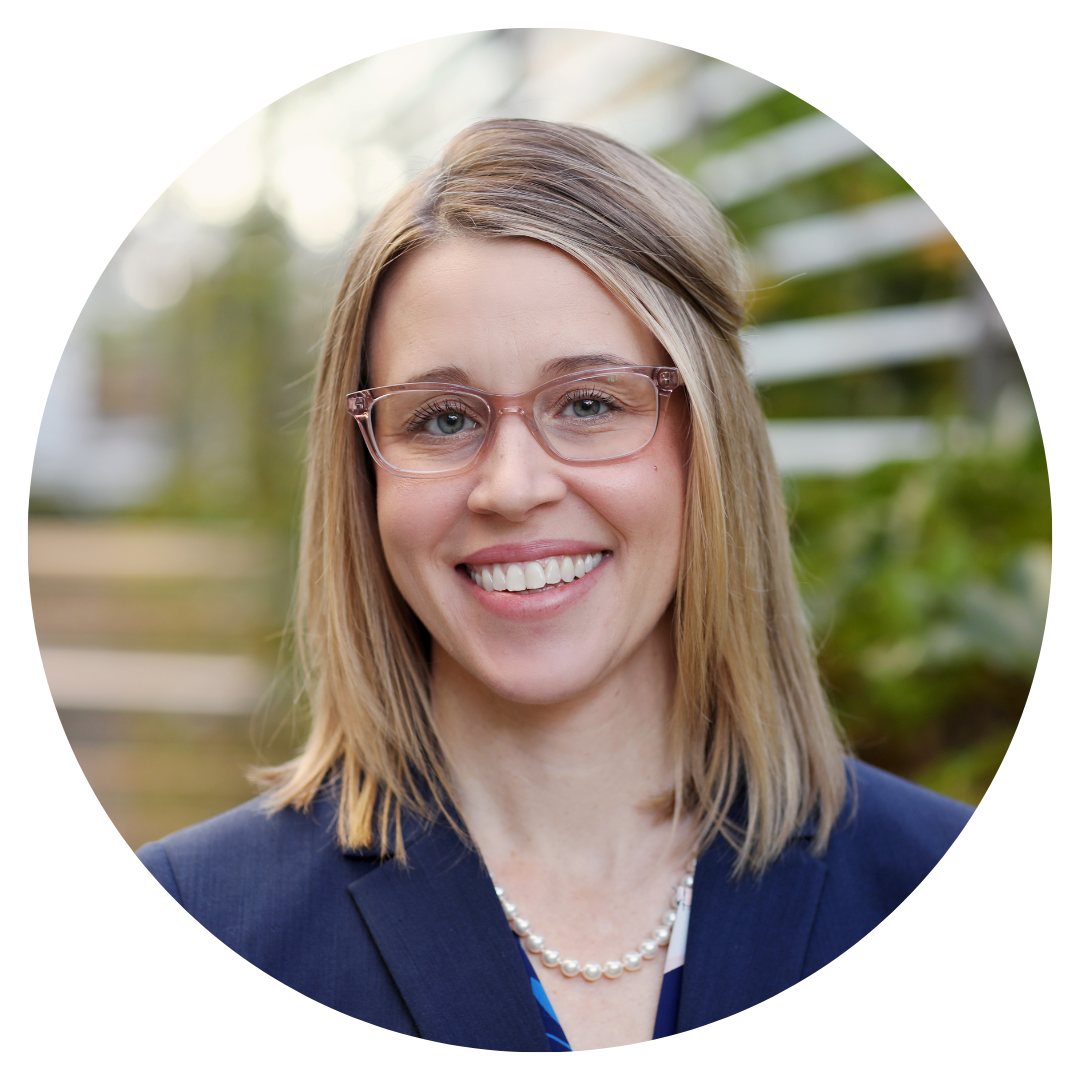
.png) Ronald Go
Ronald Go Murali Kaja
Murali Kaja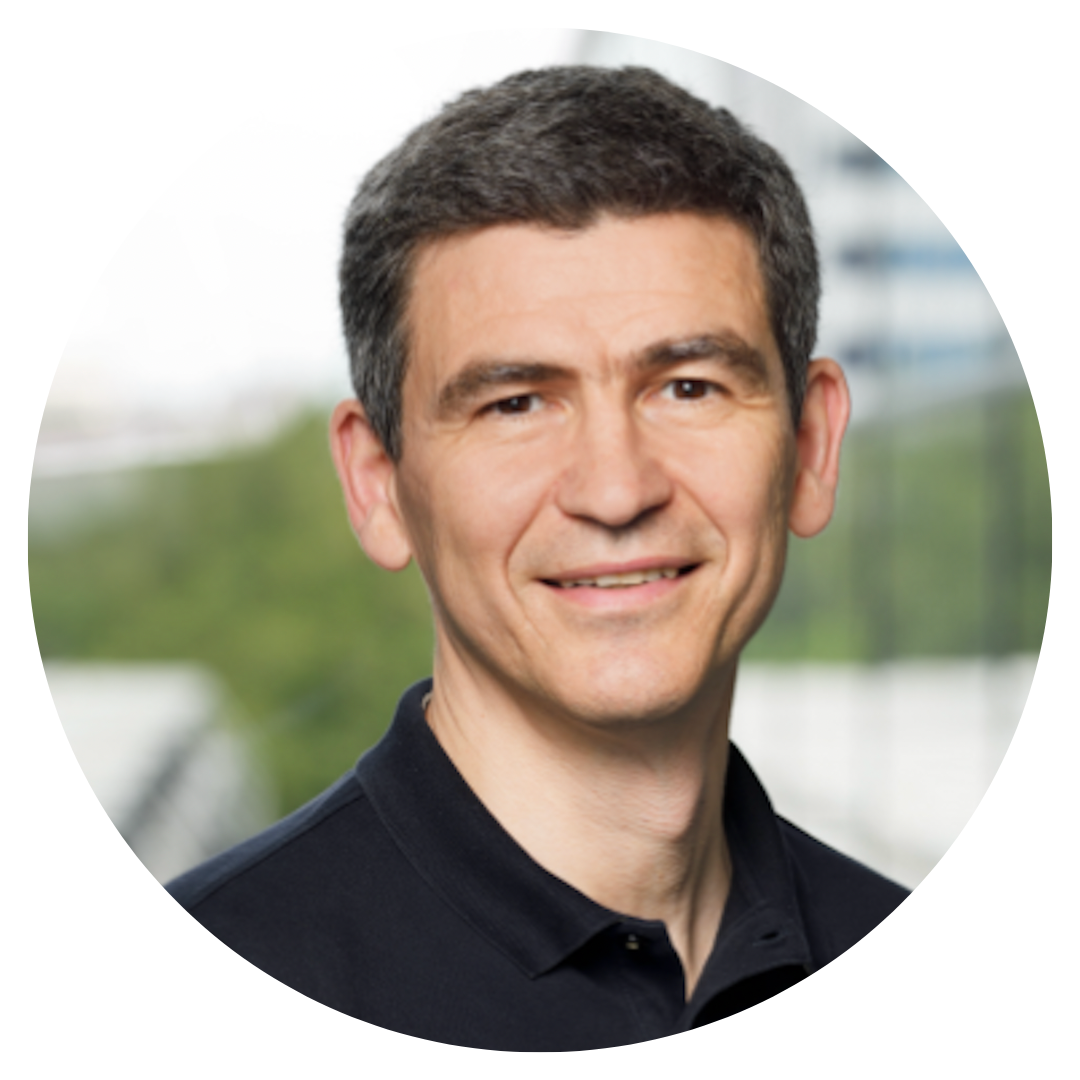 Mihai Netea
Mihai Netea
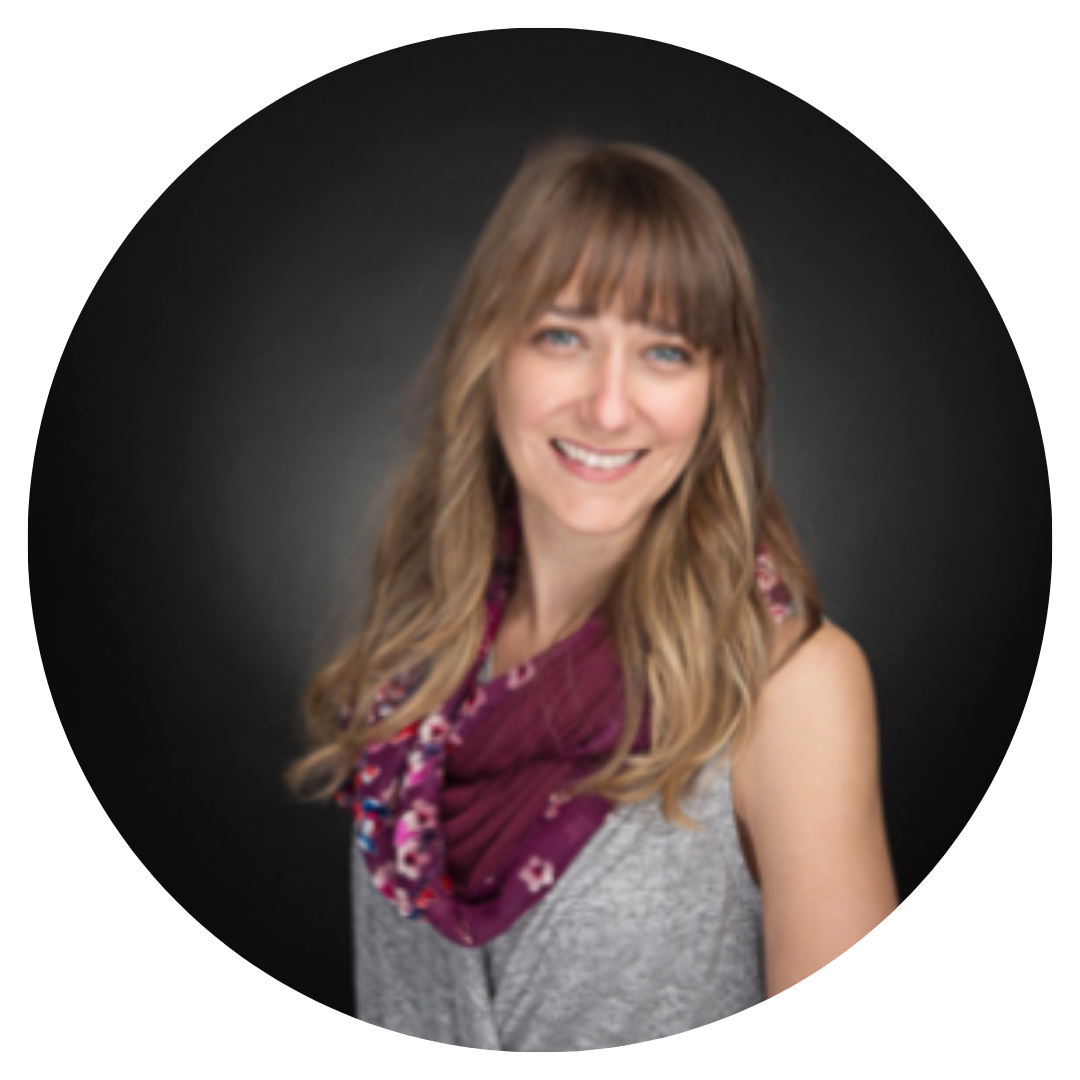
.png)
